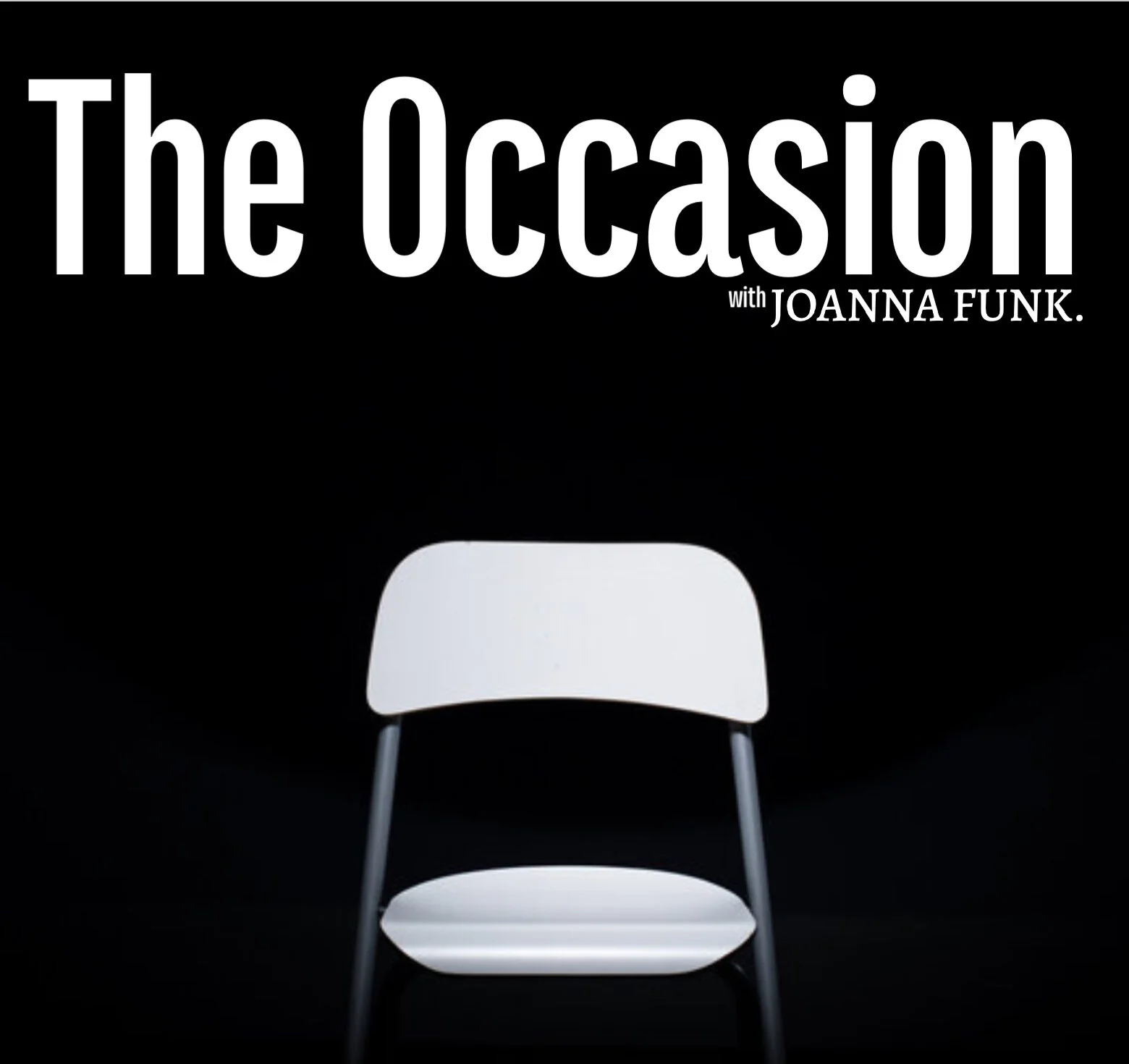INTERVIEWS
PODCAST
ARTICLES
FILM REVIEWS
EDITION 6
‘Stonefish’ is essentially about backing yourself, believing in yourself and finding your voice. As actors half the job is backing yourself. If you can do that you’re halfway there.
Megan Smart
Megan Smart and George Pullar are young award-winning Australian actors, playing lead roles in both film and television drama. Both graduates of Western Australian Academy of Performing Arts (WAAPA), these creatives are driven and opportunistic in the best sense of the word. When the Covid lockdown effectively shut down the film industry, they used their free time to write and direct their first short film, titled ‘Stonefish’.
Megan: At WAAPA, we always had not only a great friendship but a working partnership as well. We worked together on self-tapes, sent each other scripts. It was a natural progression to create our own work.
George: I’ve always been keen on writing. For as long as I’ve been acting I’ve always been tossing ideas up in the air. Megan - because I trust her opinion on everything to do with acting and story for better or worse - is a springboard for my ideas.
I wrote the script for ‘Stonefish’ in lockdown last year. A stonefish is one of the most venomous and dangerous fish that exists. It often strikes when you least expect it, and I felt that shared a strong parallel to the characters in the story. There is also a fishing scene (where the crux of the film takes place) where a stonefish is discussed.
When I sent the script to Megan to get her ten cents, she said: Hey, I think I could direct this, what do you think? I was hoping she would say that. I knew she had the instinctual skills as a director and she turned out to be perfect for the job.
Megan: ‘Stonefish’ is a black comedy about an emotionally crippled young poet who is trying to overcome his performance anxiety, when he accidentally starts a war with his neighbour. It has a coastal feel, a Gold Coast kind of vibe, even though we shot it in Sydney. Think of ‘Fargo’ crossed with Martin McDonagh’s ‘Seven Psychopaths’, that kind of world.
When I read the script, I thought: That’s a film I would want to watch. It’s funny, it’s satisfying, it’s got a great arc to it and a great journey for the main character. These are all things that I look for, as an actor when I’m choosing scripts, but also as a viewer.
George: I play the lead role Jonathon, alongside Ben Oxenbould. His character is named Don but he is just known as ‘The Man’ in the story. So it’s a two-man cast, a story about two very different men. Megan was able to extract the funny out of the shortcomings of men probably better than a man would have been able to do. In a lot of ways these men come from completely opposite worlds. My character lives a sheltered, isolated life, and Ben’s character Don is from a world of crime and brutality. But in an odd way they find common ground in their flaws - they are both seriously flawed people! That’s where a lot of the humour is derived, from where these guys fall short.
Megan: We as an audience don’t know what ‘The Man’ explicitly does for a living, but we know he’s been involved in some nefarious activity. We leave it ambiguous, we just know he’s bad news.
‘Stonefish’ is enabling both actors to grow. Megan is making her directorial debut, and George is stepping up both as a writer and an actor, since Jonathon is not a character he would normally be considered for.
George: When I wrote ‘Stonefish’, I selfishly admit I wanted to write a part that I wouldn’t typically be cast for. Jonathon is a young man hamstrung by anxiety, he lacks confidence and desperately needs to express himself but is unable to do so. He’s also a poet in a world where poetry isn’t a thing anymore. This compounds his feelings of insecurity. I thought: What journey can I put Jonathon on to make the arc for this character as strong and wide as possible in a short period of time, and in an entertaining way?
‘Stonefish’ is essentially about backing yourself, believing in yourself and finding your voice. As actors half the job is backing yourself. If you can do that you’re halfway there.
Megan Smart
George: Same with writers. It’s such a lonely process, and a lot of the time you’ve got no idea if what you’re doing is any good.
Megan: I’ve always wanted to direct. I’m always on set talking to the DOP, asking questions about lenses and being behind the scenes subconsciously collecting knowledge to one day direct. But my acting career is going well and I always thought I would direct when I was about forty! Then Covid hit and the work stopped. All of a sudden I didn’t have anything to do, so I started deep-diving into directing, and self-educating myself. When George wrote this script, I thought: if not now, then when? Covid gave us a space to think about creating something, and to actually do it. I’m grateful for that.
I was surprised by how much I had picked up just by osmosis by being on set. George and I have obviously been on sets. We know how they are run. My experience as director was very collaborative. I was working with an amazing DOP, Henry Pierce, who I had worked with before. He shot ‘Between Two Worlds’, a tv show which I did on the Seven Network. He was obviously very experienced and I felt so supported. The only way I can describe it is that it just felt right and I never really felt out of my depth. The whole process felt like teamwork in every department.
But directing was definitely very different from acting. There are a lot of crossovers from acting to directing and my training as an actor was vital to directing. For example, the skill of breaking down and analysing a script is almost exactly the same for an actor as it is for a director. Except as a director you do it for all the characters as well as for the camera, which ideally is used to support these shifts of energy and emotion you've found in the scene.
By the way, we did the shoot on the two hottest days of the year last year! It was in the heatwave, forty degrees out on the bitumen and in the sun. I thought everyone was going to pass out at one point!
Surprisingly, even though George had written the script and developed his character Jonathon, he didn’t feel as if he had licence to make changes during the shoot. Ultimately, the hierarchy of the film-making process endured.
George: When I was writing I thought: Wow this is going to be so fun to act in! I’m going to be able to change lines and whatnot. But when I came to set, it was as if I was performing someone else’s script. Although I like to improvise, I’m a big believer in sticking to the script. You’re unlikely to come up with something on the spot that’s better than what’s on the page, if you’ve already spent so much time thinking about dialogue. I respected what I’d done, and I respected Megan’s space to stick to a structure. So oddly enough, it felt similar to acting with someone else’s work. I also think that was part and parcel of Megan being the director.
Ultimately, it is the director’s film. The script of a movie is not a finished book or a finished product. It is a set of instructions for the director to go and make a really great story.
George Pullar
I managed to trick my mind into believing that I hadn’t written a script. Having too much creative control doesn’t always lead to better outcomes. At some point, I needed to jump out of the mindset of a writer and step into the role of an actor. I don’t think you can necessarily do both well at the same time.
As George and Megan are first-time producers, Continuance Pictures co-founder Tristan Barr will guide them through the distribution process and explain festival strategies.
George: I met Tristan while promoting a film that is coming out this year at a festival in Queensland. He was working on a short film, we shared a car ride together and we got along really well. I thought, I don’t know much about producing and I really want to make this short film. So I hounded Tristan for a coffee and basically just picked his brain. He read the script and was keen to come on board in some capacity, mostly in post-production in terms of distributing the film. But when he learned we planned to shoot in Sydney, he said he knows a great young producer in Sydney who is also a writer/director: Eddy Bell. We hit it off with Eddy, who introduced us to his partner Nonny Klaile. The producers of Stonefish are ourselves and Nonny. Without Eddy and Nonny we probably wouldn’t have been able to make the film so quickly and smoothly.
Megan: The whole entertainment industry is changing, from the way we consume it, to who is running it, to the amount that is available. It’s completely changed.
George: This is a really interesting time to be releasing films - even shorts - with the internet and streaming services. There are new avenues we can take, as well as the traditional festival route. We’ve shot the film and we’re editing now. Then we can strike up a more detailed plan, and that’s where Tristan will help us.
Megan and George have formed a production company called The Missing Letter Productions. ‘Stonefish’ is made under that banner, and the two partners are also writing a feature film with Pascal Mercay.
Megan: Pascal is a brilliant writer whom we met at WAAPA. The story is set on a boat, and we’re writing it together over Zoom, which can be a little painful at times, but we’re all working on the outline together at the moment.
George: ‘Stonefish’ is a starting point for what we want to do. As actors, we can’t always be working, and there’s a sense of creating work for ourselves. But we also feel there’s a huge opportunity for young filmmakers in Australia. We have such talent in this country across cast, crew, directors, writers, producers. These people are not necessarily being capitalised on in Australia. Instead we export them to America. So we really hope to take advantage of the enormous breath of talent here and to make some cracking movies in the next five or ten years.
Film is a hard game to get into and it’s typically dominated by people who have been doing it for a long time. We offer a fresh, vibrant voice in a market that can often be overcrowded with older voices. There’s nothing wrong with that and experience is great. But there’s something really exciting about being young and trying to make movies for younger people; to speak to what we see going on in the world and to reflect that in our stories.



